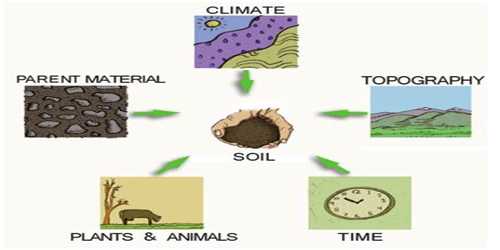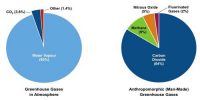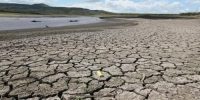Time: Soil Forming Factor
Time is the third important controlling factor in soil formation. The length of time the soil forming processes operate determines maturation of soils and profile development. A soil becomes mature when all soil-forming processes act for a sufficiently long time developing a profile. Soils developing from recently deposited alluvium or glacial till are considered young and they exhibit no horizons or only poorly developed horizons. No specific length of time in absolute terms can be fixed for soils to develop and mature.
The age of a soil is determined by growth and not chronological age. The scale of aging depends on the intensity of the other four soil forming factors. Younger soils have several characteristics from their parent material, but as they age, the accumulation of an organic substance, exposure to humidity and other environmental factors might transform its features. With time, they settle and are buried deeper below the surface, taking time to transform. Ultimately they might transform from one soil category to another.















